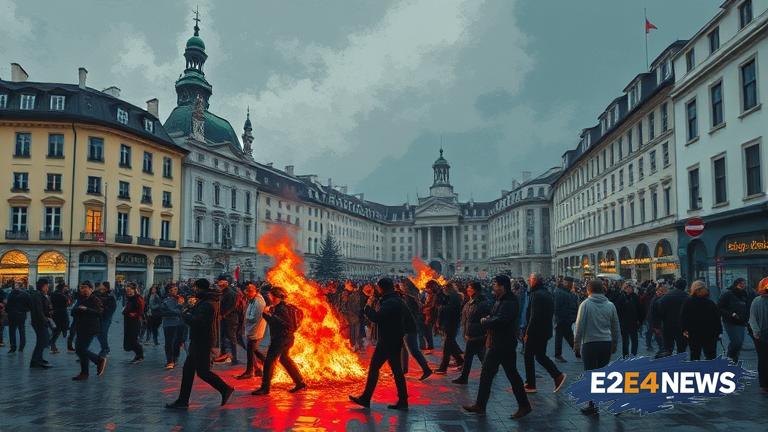The city of Lausanne, known for its picturesque landscapes and Olympic heritage, has been marred by violent unrest in recent times. The disturbances, which have resulted in injuries and property damage, have raised concerns among locals and prompted an investigation into the underlying causes. At the heart of the issue lies a complex interplay of social, economic, and cultural factors that have been simmering beneath the surface. Lausanne, being a hub for international organizations and diplomatic missions, boasts a diverse population, but this diversity also brings its own set of challenges. The city’s housing market, characterized by high rents and limited affordability, has been a significant point of contention. Many young people and low-income families find themselves priced out of the city, leading to social and economic marginalization. Furthermore, the lack of community spaces and recreational areas for youth has been cited as a contributing factor to the unrest. The absence of inclusive policies and programs tailored to the needs of diverse communities has exacerbated feelings of exclusion and disenfranchisement. In response to these grievances, community leaders and activists have been calling for more inclusive and equitable urban planning, as well as increased investment in social services and youth programs. The situation in Lausanne also reflects broader trends in Switzerland, where issues of immigration, integration, and social cohesion are increasingly coming to the fore. As the country navigates these challenges, it is clear that a multifaceted approach will be necessary to address the root causes of the unrest. This includes not only policy reforms but also community-led initiatives and dialogue. The role of education in promoting understanding and tolerance cannot be overstated, and schools have a critical part to play in fostering a sense of community and belonging among young people. Additionally, the engagement of local businesses and the private sector in supporting community development projects could provide valuable resources and expertise. The international community, given Lausanne’s status as a diplomatic hub, also has a role in promoting peace and understanding, through the sharing of best practices and collaborative problem-solving. Despite the challenges, there are numerous examples of successful community initiatives and projects in Lausanne that have brought people together and promoted social cohesion. These initiatives, often led by grassroots organizations and volunteers, demonstrate the potential for community-led solutions to address the complex issues at hand. However, for these efforts to be sustainable and effective, they require support and recognition from local authorities and the broader public. The path forward for Lausanne involves a commitment to dialogue, inclusivity, and community engagement, recognizing the value of diversity and the need for equitable opportunities for all residents. By learning from the experiences of other cities and engaging in a process of continuous learning and improvement, Lausanne can work towards a more peaceful and harmonious future. The situation serves as a reminder of the importance of proactive and inclusive governance, where the needs and voices of all community members are heard and valued. Ultimately, the resolution of the unrest in Lausanne will depend on the ability of stakeholders to come together in a spirit of cooperation and mutual respect, seeking solutions that benefit the community as a whole.





